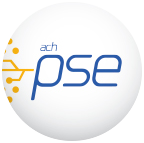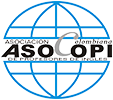Literacies in ELT (LitsELT)
Literacies in ELT (LitsELT)
Coordinator : Raúl Alberto Mora
Contact : asocopisigliteracies@gmail.com
Affiliation : Universidad Pontificia Boliviariana
Research group Pedagogía y Didácticas de los Saberes (PDS)
The Literacies in Second Languages Project (LSLP) is a research initiative at Universidad Pontificia Bolivariana, Sede Central Medellín. LSLP was chartered in 2012 to address the need to offer students at the School of Education and Pedagogy at UPB a unit devoted to introducing prospective teachers to second language research. At present, LSLP features 21 preservice teachers enrolled in the Student Research Group (SRG) unit, 14 practitioners in the Extended Research Team (XRT), and an international network of researchers and partners in the United States, Canada, Brazil, Australia, Poland, and Russia. LSLP is affiliated with the Pedagogía y Didácticas de los Saberes (PDS), a Colciencias-recognized research group (currently at Category C) interested in studying different features related to learning and teaching practices. PDS opened a special research line on Second Language Studies last year, line that now supports all the research efforts we carry at LSLP. PDS GrupLac: http://scienti.colciencias.gov.co:8080/gruplac/jsp/visualiza/visualizagr.jsp?nro=00000000001510
Purpose of the SIG and domains of Inquiry
Over the past five years, LSLP has engaged in doing research in the nascent field of work we call Literacies in Second Languages (Mora, 2017a, 2017b). The purpose of this emerging field is to develop new frameworks with researchers, teachers, and teacher educators in order to implement ideas stemming from paradigms in contemporary and alternative literacies such as critical literacy, New Literacy Studies, Multiliteracies, digital literacies, and multimodal literacies, all within the idea of promoting “south-south scholarship” (Mora, 2016) and turn Colombia into an alternative hub for literacies research in the south, aside from the traditional spaces like Australia, New Zealand, and South Africa. At the LitsELT SIG, we hope to invite more Colombian (and Latin American) scholars and practitioners in this extended conversation that LSLP has already taken to international events and published in journals and book chapters (see Mora, 2015, for a description of some of our ideas). We wish to provide a space for teachers and teacher educators to collaborate and experiment in bringing these ideas to their classrooms, as our teacher-researchers are already doing. ASOCOPI is, for us, the perfect space to have this conversation. As the leading association for Colombian English teachers, we expect LitsELT to be a leader in developing a broader learning community congregated around literacies research.
Possible topics LitsELT will explore include:
• The adaptation of alternative literacy paradigms in the P-20 curriculum, with special emphasis on: o Introducing critical literacy in the PreK-5 English curriculum (Cañas, Ocampo, Rodríguez, López-Ladino, & Mora, forthcoming) o Proposing new frameworks for alternative literacies in elementary and secondary education o Infusing alternative literacy paradigms in ELT teacher education (Mora, forthcoming)
• Second language literacies in urban spaces (Mora, 2015; Mora, Pulgarín, Ramírez, & Mejía-Vélez, forthcoming)
• The use of English in the context of videogames (Language-as-Victory) (Hernandez & Castaño, 2016; Mora, Castaño, Orrego, Hernandez, & Ramírez, 2016; Mora, Gee, Castaño, Orrego, & Ramírez, forthcoming)
• Using ethnographic methods in literacies research in second language contexts
• Others TBD organically.




